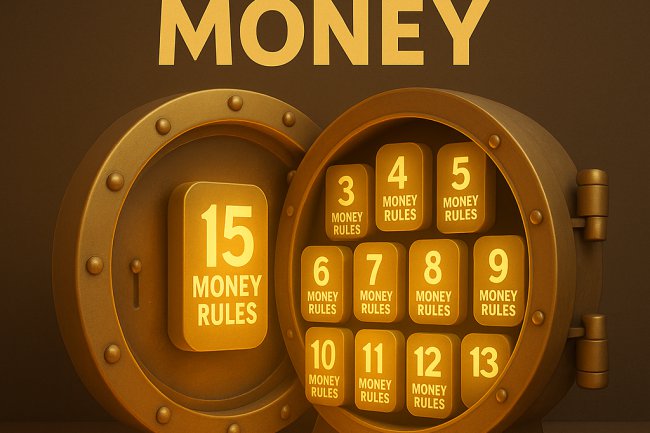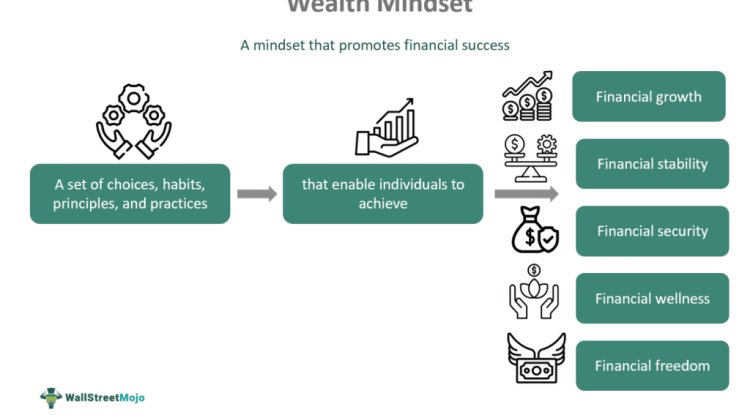The Money Mirror: What Your Spending Habits Reveal About You
Discover what your spending habits say about your mindset. From emotional spenders to investor thinkers, “The Money Mirror” reveals how your financial behavior reflects your true self—and how to master it.

Below is the complete, SEO-optimized blog draft—structured for your Wealth Insights brand style (professional yet relatable, global with an African flavor, visually oriented with Pixar-style storytelling).
INTRO: Look Into the Mirror—Your Money Is Talking
When you look into a mirror, you see your face.
But when you look into your spending habits, you see your truth.
Money doesn’t lie. It quietly reveals who you are, what you value, and how you think about life.
Every swipe of your card, every M-Pesa transaction, every impulse buy on Jumia — it all tells a story.
A story of mindset.
A story of priorities.
A story of financial identity.
Welcome to “The Money Mirror”—a self-reflection series designed to help you see what your money behavior says about you.
WHY YOUR SPENDING HABITS MATTER
We often think financial success starts with earning more.
But in reality, it starts with understanding how you spend.
You can earn six figures and still be broke.
You can earn modestly and still build wealth.
The difference? Awareness and discipline.
Your money habits are not just about math—they’re about meaning.
They expose your emotional patterns, your fears, and your ambitions.
Let’s decode five common spending personalities and uncover what each one reveals about your financial mindset.
1️⃣ THE EMOTIONAL SPENDER
“I shop when I’m stressed, bored, or celebrating.”
Profile:
You buy things not because you need them — but because they make you feel better.
You reward yourself with instant gratification: new clothes, take-out food, a trip to Naivasha after a tough week.
Money Mirror Insight:
Your emotions, not your logic, control your wallet. You use money as a mood booster.
What It Reveals:
You might be craving control, validation, or comfort. Emotional spending is rarely about the item — it’s about escaping a feeling.
Signs You’re an Emotional Spender:
-
You buy to celebrate small wins or cure sadness.
-
You say, “I deserve this,” even when it strains your budget.
-
You regret purchases soon after.
-
Your expenses rise when your emotions fluctuate.
Transformation Tip:
Create an “Emotional Emergency Fund” — not for bills, but for your moods.
Set aside a small allowance for fun spending and name it: “Feel-Good Fund.”
This helps you release emotions without wrecking your finances.
Visual Concept (Pixar-Style):
A mirror showing someone looking sad, then smiling after buying things — with reflections of emotional clouds turning into receipts.
2️⃣ THE STATUS SPENDER
“If I don’t look successful, people won’t respect me.”
Profile:
You believe success is something to show.
You love luxury items, designer clothes, and premium gadgets — even when your savings are low. You live by the “fake it till you make it” rule.
Money Mirror Insight:
Your identity is tied to appearances. You seek validation from others, not satisfaction within yourself.
What It Reveals:
Deep down, you might fear being overlooked or underestimated.
You use money to create the image of success rather than the foundation of it.
Signs You’re a Status Spender:
-
You buy things for how they’ll look on Instagram.
-
You feel pressure to “keep up” with friends or influencers.
-
You prioritize lifestyle over savings.
Transformation Tip:
Shift your goal from looking rich to becoming wealthy.
Redirect your “status money” to build assets that pay you — not brands that use you.
Local Example:
Instead of buying the newest iPhone, invest that amount in a Safaricom stock, a money market fund, or your side hustle branding.
Visual Concept (Pixar-Style):
A reflection showing a person posing with luxury items — while their reflection reveals a bank account crying.
3️⃣ THE MINIMALIST SAVER
“I’d rather save than spend.”
Profile:
You take pride in saving every shilling. You hate debt, avoid risk, and live below your means. You track every coin like a hawk.
Money Mirror Insight:
You’re disciplined — but sometimes too cautious.
Your fear of losing money might be stopping you from growing it.
What It Reveals:
You value security and control.
However, you might be missing opportunities due to fear.
Signs You’re a Minimalist Saver:
-
You prefer bank accounts to investments.
-
You delay purchases endlessly.
-
You view risk as danger instead of opportunity.
-
You feel guilty spending even on important things.
Transformation Tip:
Balance saving with strategic investing.
Start small — with SACCO shares, government bonds, or index ETFs.
Remember: Money sitting still loses power to inflation.
African Example:
If you save KSh 10,000 a month in a bank, you’ll have KSh 120,000 in a year.
If you invest it in a 10%-return fund, you’ll have KSh 132,000.
That’s how your money starts working for you.
Visual Concept (Pixar-Style):
A mirror showing a person sitting on a pile of cash — while their reflection shows the same cash shrinking with inflation bubbles.
4️⃣ THE INVESTOR MINDSET
“Every coin is a soldier. I send it to bring back more.”
Profile:
You see money as a tool, not a trophy.
You budget, save, invest, and track your net worth. You love assets — from stocks and bonds to side hustles and real estate.
Money Mirror Insight:
You’re future-oriented. You focus on growth, not gratification.
What It Reveals:
You understand that wealth is built through time, patience, and compounding — not luck or lifestyle.
You’ve trained your emotions to serve your strategy.
Signs You Have the Investor Mindset:
-
You prioritize cash flow over consumption.
-
You reinvest profits instead of spending them.
-
You see market dips as buying opportunities.
-
You learn about money weekly — books, blogs, or YouTube.
Transformation Tip:
Keep your balance. Don’t let the “investor identity” turn into obsession.
Remember, money is a servant — not a master.
Enjoy your progress while staying disciplined.
Local Flavor:
Kenyan investors can start with CBK Treasury Bonds, NCBA Money Market Fund, or NSE-listed ETFs.
Nigerians can use Cowrywise or PiggyVest for automated investing.
Visual Concept (Pixar-Style):
A mirror showing a person watering a money plant — and in the reflection, the tree is full of fruits labeled “dividends,” “rent,” “interest.”
5️⃣ THE AVOIDER
“I just don’t want to think about money.”
Profile:
You ignore your finances altogether. You hate budgeting, postpone paying bills, and avoid checking balances because it’s “too stressful.”
Money Mirror Insight:
Avoidance is a coping mechanism. You’re protecting yourself from anxiety — but in the process, you’re losing control.
What It Reveals:
You might have past money trauma, guilt, or shame.
Maybe you grew up seeing financial conflict, or you associate money with pain.
Signs You’re a Money Avoider:
-
You don’t know how much you spend monthly.
-
You rely on debt or luck to get by.
-
You avoid opening financial emails or apps.
-
You say, “I’ll deal with it later.”
Transformation Tip:
Start small. Spend 15 minutes every Sunday reviewing your week’s spending.
Use apps like Branch, Mint, or Absa Timiza.
Knowledge reduces fear. The more you see, the more power you have.
Visual Concept (Pixar-Style):
A reflection showing someone covering their eyes — but in the mirror, their bills are piling up behind them.
THE TAKEAWAY: MONEY IS A MIRROR, NOT A JUDGE
Your spending habits don’t make you good or bad — they make you human.
But once you recognize your pattern, you have a choice:
Keep reacting emotionally, or start responding intentionally.
The goal isn’t perfection — it’s progress.
Each purchase is a reflection of your values, not your value.
So next time you spend, pause and ask:
“Is this decision aligned with the future I’m building?”
ACTION PLAN: HOW TO REWRITE YOUR MONEY STORY
-
Track for 30 Days: Record every expense — M-Pesa, card, cash.
-
Label It: Emotional, status, survival, or growth.
-
Review Weekly: Look for patterns and triggers.
-
Redesign: Replace one negative pattern with a healthy one.
-
Reinvest: Redirect impulse money toward assets or savings.
When you start managing money with awareness, you move from reaction to creation — from chaos to clarity.
FINAL THOUGHT:
Your wallet reflects your world.
Clean it up, and your life follows.
So go ahead — stand in front of your Money Mirror today.
You might be surprised by what stares back.
What's Your Reaction?




















